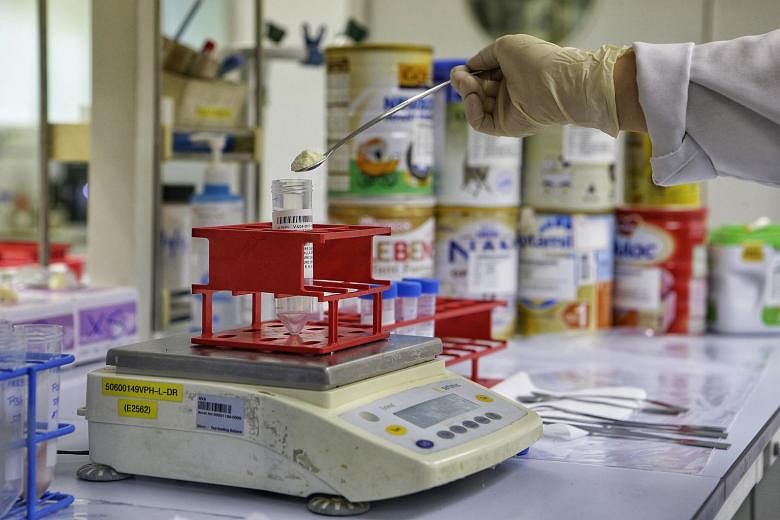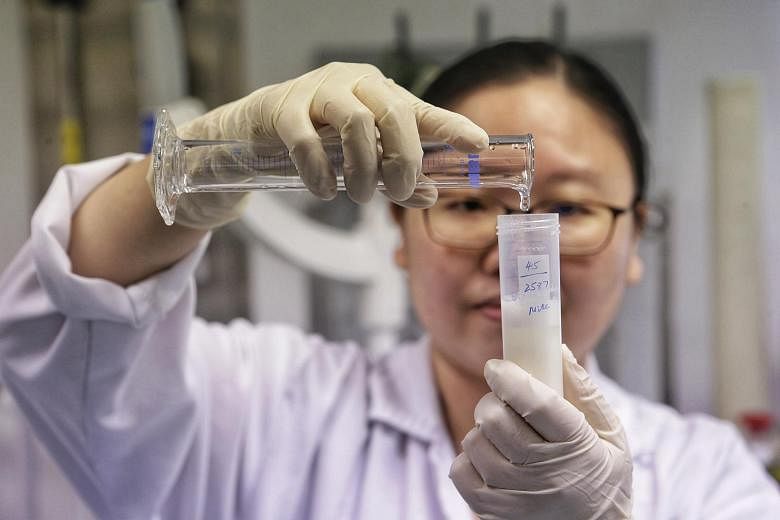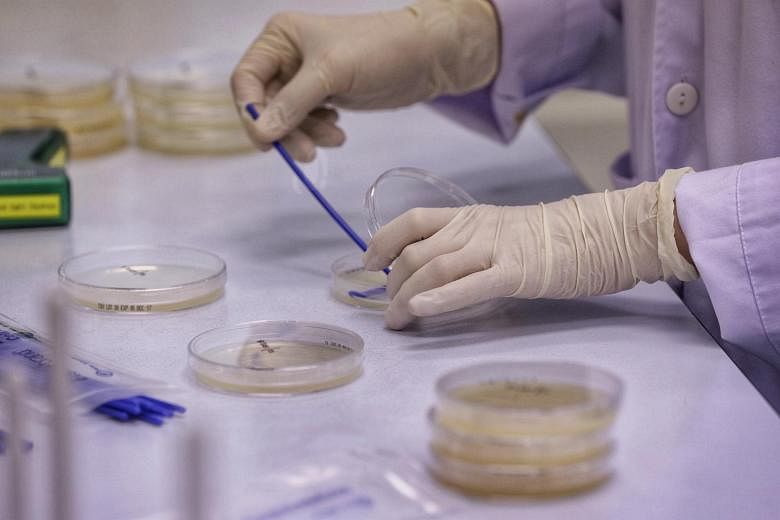SINGAPORE - All samples of formula milk tested as part of the Agri-Food and Veterinary Authority's (AVA) food safety surveillance programme have met its food safety standards and requirements, it told The Straits Times.
The AVA has facilitated the introduction of 24 new formula milk products to the Singapore market since a government taskforce was set up in May to address the issue of high prices.
Among these are brands such as Australia's Own, which was launched by FairPrice in June, and Nature One Dairy, introduced at Sheng Siong supermarkets in August.
The additions have provided a more affordable range of choices on supermarket shelves at price points of about $25 to $40 for a 900g tin.
The Straits Times reported in March that the average price of a 900g tin of infant milk powder in Singapore had more than doubled over the last decade to $56.06, making it among the most expensive in the world.
To bring more affordable products in, the AVA streamlined its import procedures and requirements for formula milk earlier this year by obtaining certification of food safety and quality directly from governments in the country of origin.
Importers bringing in products from an approved list no longer need to submit testing documents, helping them to save on time and compliance costs.
The AVA stressed, however, that food safety standards have not been compromised, as nutrient composition requirements and food safety surveillance have not been relaxed.
During a recent behind-the-scenes tour of its inspection and testing process, the AVA explained that its surveillance is based on assessment of food safety risk.
Products from a new source, for example, are put on a hold-and-test regime and cannot be sold until an inspection and tests have been passed, which can take 10 to 16 days.
After consistently meeting food safety standards and requirements, they are placed under a routine surveillance and sampling programme.
Inspections involve documentary checks to verify the accuracy of item declarations, as well as physical checks for signs of damage and compliance to labelling and nutrition requirements.
Samples are also taken and tested for hygiene, chemical contaminants, such as drug residues, as well as microbial pathogens such as salmonella.
Dr Paul Chiew, AVA's food safety programme chief, said importers must ensure that food safety standards and requirements are met prior to import, while "downstream measures" such as inspection and laboratory analysis verify that AVA's standards are met.
"The import measures and surveillance provide assurance that formula milk products sold here continue to meet our safety standards and the nutritional needs of infants and young children," he said.




